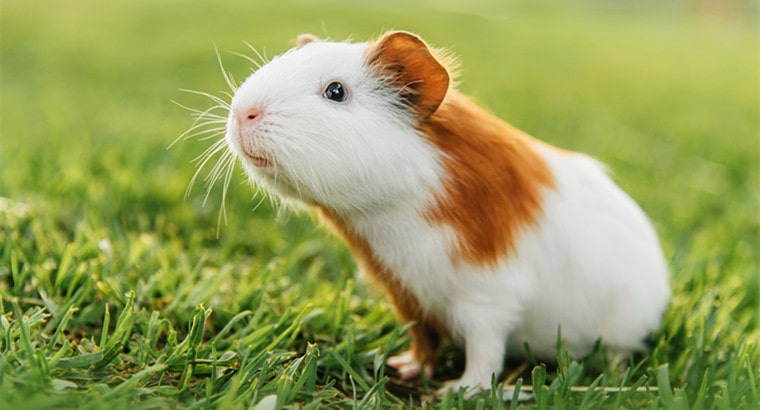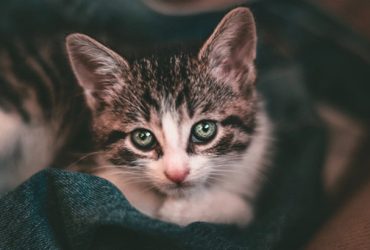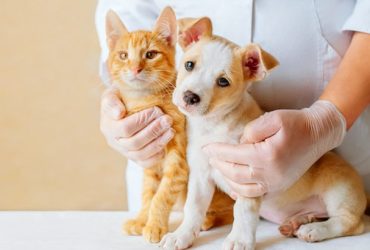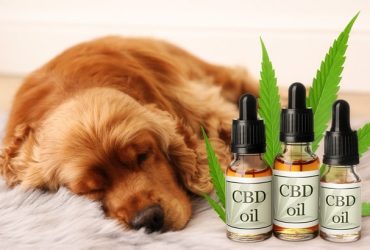If you’re a proud owner of a guinea pig, you know that these small, fluffy creatures are more than just pets; they’re family. Caring for your guinea pig involves more than just providing a clean cage and love; it also requires careful attention to their diet. Guinea pigs have specific dietary needs that must be met to ensure they lead happy, healthy lives.
In this article, we’ll explore the key elements of a guinea pig’s diet, including the best hay for guinea pigs, fresh veggies, and other essential nutrients to keep your furry friend in top shape.
The Role of Hay in a Guinea Pig’s Diet
Hay is a critical component of a guinea pig’s diet. It provides essential nutrients and fiber that help maintain their digestive health, dental health, and overall well-being. When selecting the best hay for guinea pigs, there are a few important considerations to keep in mind:
Timothy Hay
Timothy hay is often considered the best hay for guinea pigs. It is high in fiber, low in calcium, and has an ideal balance of nutrients for guinea pigs of all ages. The long, coarse strands of Timothy hay help wear down their ever-growing teeth, preventing dental issues. When offering Timothy hay, make sure it’s fresh, free of dust, and stored in a dry place to maintain its nutritional value.
Orchard Grass Hay
Orchard grass hay is another excellent choice for guinea pigs. It’s softer and slightly sweeter than Timothy hay, making it a great option to add variety to their diet. Guinea pigs usually enjoy the taste of Orchard grass hay, and it can be a nutritious addition to their daily hay intake.
Meadow Hay
Meadow hay is a diverse mix of grasses and plants found in natural meadows. It can be a good option to provide variety and mimic the guinea pig’s natural foraging habits. However, it’s essential to ensure that the meadow hay is free of toxic plants or contaminants.
Alfalfa Hay
While Timothy and Orchard grass hay are suitable for guinea pigs of all ages, alfalfa hay is better reserved for young, growing guinea pigs or pregnant and nursing sows. It’s higher in calcium and protein, which is necessary for their growth and development. Adult guinea pigs, on the other hand, should only have alfalfa hay in moderation due to the risk of excess calcium intake.
It’s crucial to provide a constant supply of hay for your guinea pig. Their digestive system requires a steady influx of fiber, and hay also keeps them occupied and mentally stimulated. As guinea pigs graze on hay throughout the day, it helps wear down their teeth, which continuously grow, preventing dental issues. Ensure that your guinea pig always has access to fresh hay in their cage.
Fresh Veggies: A Nutrient-Packed Addition
In addition to hay, fresh vegetables are an important part of a guinea pig’s diet. Vegetables provide essential vitamins and minerals that can’t be obtained from hay alone. However, it’s important to choose the right vegetables and offer them in the correct amounts.
Leafy Greens
Leafy greens are a favorite of guinea pigs. Some excellent options include:
- Romaine lettuce
- Green leaf lettuce
- Red leaf lettuce
- Butterhead lettuce
- Spinach (in moderation due to its calcium content)
- Kale (sparingly, due to its high calcium content)
Leafy greens are rich in vitamin C, which is essential for guinea pigs, as they cannot produce this vitamin on their own. However, be cautious not to overdo it with high-calcium greens like kale, as excessive calcium can lead to bladder stones.
Bell Peppers
Bell peppers are a great source of vitamin C and are usually well-received by guinea pigs. The colorful varieties, such as red, yellow, and green, are all suitable choices. Not only do they add a burst of color to your guinea pig’s diet, but they also provide important nutrients.
Carrots
Carrots are another favorite among guinea pigs. They contain beta-carotene, which is converted into vitamin A in their bodies. Vitamin A is crucial for maintaining healthy skin, vision, and immune function. However, carrots are relatively high in sugar, so offer them in moderation.
Cucumbers
Cucumbers are a refreshing and hydrating treat for guinea pigs. They’re low in calories and provide some vitamin C. Just make sure to wash them thoroughly and remove any seeds.
Celery
Celery is a crunchy, low-calorie vegetable that guinea pigs often enjoy. It’s a good source of fiber and can be a fun addition to their diet.
When introducing new vegetables to your guinea pig’s diet, do so gradually. Start with small portions and observe their response. Not all guinea pigs have the same preferences, so it may take some trial and error to determine their favorite veggies.
The Importance of Vitamin C
Guinea pigs have a unique dietary requirement—they need a consistent supply of vitamin C. Unlike humans, guinea pigs cannot produce their own vitamin C, so it’s essential to provide it through their diet. A lack of vitamin C can lead to scurvy, a disease that can cause a range of health problems, including joint pain, swollen limbs, and weight loss.
In addition to fresh vegetables rich in vitamin C, you can also offer vitamin C-fortified guinea pig pellets. These specially formulated pellets ensure that your guinea pig gets the necessary daily intake of this vital vitamin. However, it’s important not to rely solely on pellets, as a variety of fresh vegetables and high-quality hay should still make up the bulk of their diet.
Fruits: A Treat, Not a Staple
While fruits can be a delightful treat for guinea pigs, they should be given in moderation due to their high sugar content. Some fruits that guinea pigs can enjoy as an occasional treat include:
- Apples (remove seeds and core)
- Strawberries
- Blueberries
- Melon (remove seeds and rind)
- Kiwi
- Oranges (small pieces)
- Cherries (remove pits)
Remember that fruits should be given sparingly and in small portions to avoid excessive sugar intake. Treats like these can be a special reward for your guinea pig but should not replace their regular diet of hay and vegetables.
Water: The Elixir of Life
In addition to a balanced diet of hay, vegetables, and occasional fruits, guinea pigs require access to clean, fresh water at all times. Make sure they have a water bottle or dish that’s regularly cleaned and refilled. Dehydration can be a severe health issue for guinea pigs, so it’s crucial to monitor their water intake and ensure they are drinking enough.
How to Create a Balanced Diet
Now that we’ve covered the key elements of a guinea pig’s diet, let’s discuss how to create a well-balanced meal plan for your furry friend. Here’s a sample daily diet for a guinea pig:
Hay
Offer a constant supply of high-quality hay, such as Timothy hay or Orchard grass hay. Guinea pigs should eat hay throughout the day.
Fresh Vegetables
Provide a variety of fresh vegetables daily. You can mix and match leafy greens with other veggies like bell peppers, cucumbers, or carrots. Aim to give about 1 cup of fresh veggies per day, divided into two servings.
Vitamin C-Fortified Pellets
Guinea pig pellets can be given in moderation. A small handful (about 1/8 cup) per day is usually sufficient. Look for high-quality pellets without added sugars or fillers.
Fruits (as treats)
Offer small pieces of fruit as an occasional treat, a few times a week. Limit fruit servings to around 1-2 tablespoons at a time.
Fresh Water
Make sure your guinea pig has a clean source of fresh water available at all times.
Remember that each guinea pig is unique, and their dietary needs may vary. Some guinea pigs may have food sensitivities or allergies, so keep a close eye on their reactions when introducing new foods. It’s also essential to monitor their weight to ensure they are maintaining a healthy body condition.
Avoid These Foods
While it’s crucial to provide a balanced diet for your guinea pig, there are certain foods that should be avoided. These include:
High-calcium greens
As mentioned earlier, vegetables like spinach and kale are high in calcium and should be offered sparingly to avoid the risk of bladder stones.
Cabbage and broccoli
These veggies can cause gas and digestive discomfort in guinea pigs, so it’s best to avoid them.
Processed or sugary foods
Guinea pigs have sensitive digestive systems and should not be given human snacks or sugary treats. Stick to their natural diet for optimal health.
High-sugar fruits
Limit the consumption of high-sugar fruits like grapes and bananas to occasional treats.
Maintaining a Healthy Diet
In addition to providing the right foods, it’s important to ensure that your guinea pig maintains a healthy diet. Here are some additional tips:
Observe portion control:
Feeding your guinea pig the right portion sizes is crucial. Overfeeding can lead to obesity and related health issues, while underfeeding can result in malnutrition.
Regularly clean their food and water containers:
Cleanliness is key to your guinea pig’s health. Ensure that their food and water containers are washed and refilled daily to prevent the growth of harmful bacteria.
Monitor their weight:
Regularly weigh your guinea pig to ensure they are maintaining a healthy weight. Sudden weight loss or gain can be a sign of underlying health issues.
Pay attention to their behavior:
Observe your guinea pig’s behavior and appetite. Any sudden changes in behavior or eating habits may indicate health problems, and it’s essential to consult a veterinarian.
Consult with a veterinarian:
A guinea pig-savvy veterinarian can provide guidance on your pet’s specific dietary needs and overall health. Regular check-ups are important to catch and address health issues early.
Unique Diet Perfect for your Guinea Pig
Crafting the perfect diet for your guinea pig is a labor of love. Providing the best hay for guinea pigs, a variety of fresh vegetables, and vitamin C-rich foods ensures that your furry friend stays healthy and happy. Remember that each guinea pig is unique, and it may take some time to find their favorite foods and ideal portion sizes.
By paying attention to their needs and consulting with a veterinarian when necessary, you can give your guinea pig a long and fulfilling life as a cherished member of your family. Your dedication to their well-being will be rewarded with their joyful squeaks and endearing personalities.










